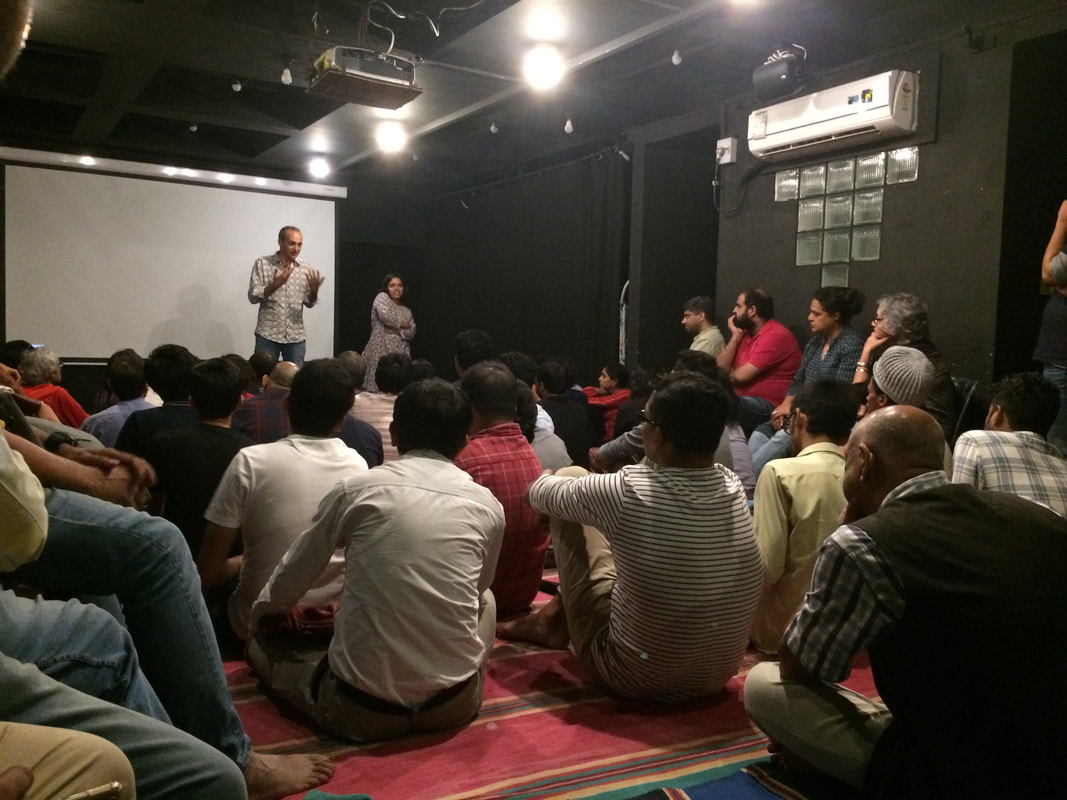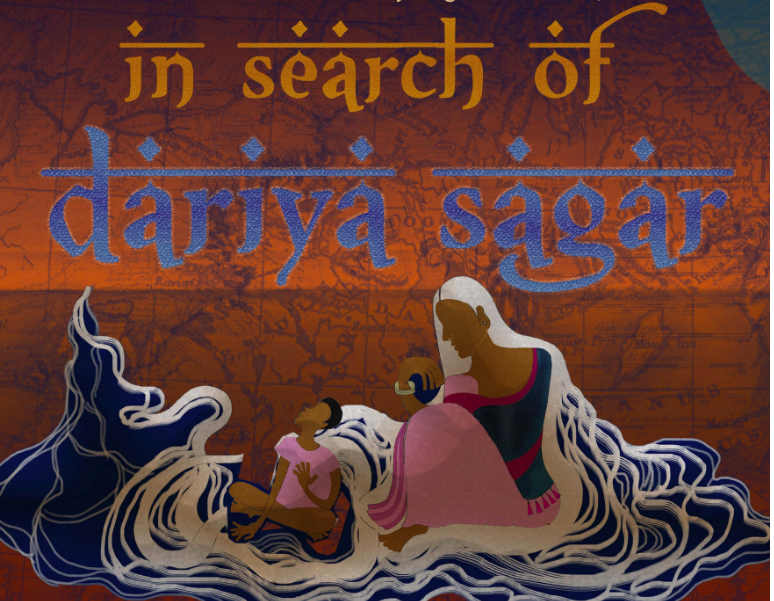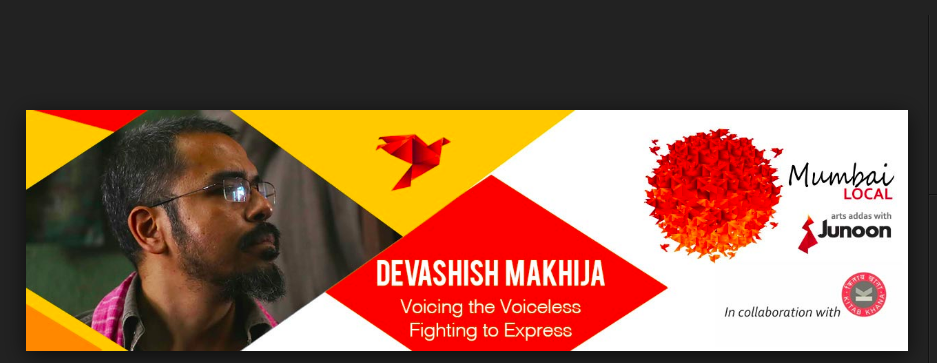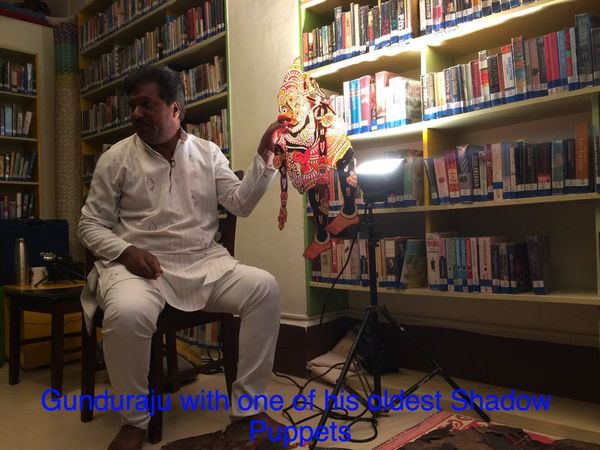|
For a change this blog is not a review. I watched the two films Ghost Hunting and Palestinian Children under Fire. Post screening there was the Q&A that provided further learning .. if you have read the news and recent news (read Ahed Tamimi or the Unseen costs of imprisioning Palestine minors
Vikalp@Prithvi is a monthly series of documentaries and short films followed by a discussion, brought to you by Vikalp: Films for Freedom in collaboration with Prithvi Theatre, on the last Friday of every month at 7 pm. Entry is always free. On July 27, Vikalp@Prithvi screened two films on Palestine followed by Q&A with the director and human rights activists. The first film was 'Palestinian Children Under Fire' Directed by Amal Wahdan Followed by Q&A with Apoorva, South Asia Coordinator at the Palestinian Boycott, Divestment and Sanctions National Committee and Feroze Mithiborwala, General Secretary, India Palestine Solidarity Forum. About the Film: The film catalogues historic and current Israeli human rights abuses perpetrated against Palestinian people, especially children, providing the most up-to-date record of such instances of human rights violations available to date. Amal Wahdan is a Palestinian women and human rights activist and former political prisoner. She was one of the founders of the Unified Leadership of the Intifada 1988. She is the Chairwoman of the Shaikh Hasan Foundation. The second film screening was of 'Ghost Hunting'. Followed by Q&A with Palestinian Director Raed Andoni About the Film: A filmmaker, searching for former inmates of Jerusalem’s Moskobiya interrogation center for a documentary, places a newspaper advertisement in Ramallah. After a casting process, the men reenact their interrogations, discuss details about the prison, and express the humiliation they experienced during detention. For those in Mumbai do visit every last Friday of a month at 7 pm for Vikalp@Prithvi film screening and Q&A at At Prithvi House, Opposite Prithvi Theatre, Janki Kutir, Juhu Church Road, Juhu, Bombay
0 Comments
In search of Dariya Sagar
A two hour long play curated by the Blind and the Elephant and directed by Gerish Khemani. I watched in my favourite place G5A.. favourite because of the location. When you've spend you primary and secondary school years in a place called Ulhasnagar you cannot avoid Sindhis. As a child I grew up seeing the transformation in Sindhi community around me. Once I told my mother, "That fat woman with big bumpies came to meet you." I got slapped for being so honest. A hard working community, my widowed mother used to contributing running the house by getting loan by mortgaging her jewellery to one of the Sindhi families in the neighbourhood. One day she lost her mother's only piece of gold pendant and I saw her crying because she was unable to repay the interest rate. I developed special emotions for all Sindhis thereafter... Period. In this background, I took courage to watch this play - more to understand if Gerish Khemani will address what is this lost identity has done to next generation - a majority who continue to live in ghettos/ camp areas. The play was too long.. that would be my first comment to writers Khemani along with Akshat Nigam. The actors did a good job to entertain throughout using appropriate props in between. By break time G5A's Black Box cold temperature was already making many feel drozzzzy ;-) Some audience left during the break time, but I wanted to check out the ending. Oh the music and the singer (didn't get his name) did fabulous job and kept the momentum of the drama alive. About the play, the constant search for identity - Sindhi identity - by the protagonist, Jatin, takes you through the history of India before the divide and the journey to leave the land, memories behind in Sindh to adopt a new home. Dreams, ghosts, story-telling of two lovers, and displaced community all these elements nicely twisted in the script gave a nice theatrical experience. Entertainment. As I walked out of the theatre, I remembered my childhood friend Dolly whose grandmother 'amma' used to tell us stories of why she converted to adopt Sikh culture. Amma would tell us stories of how before partition they had to leave all their ornaments in a trunk that they hid in a well. She would say it was the trunk where she left her Sindhi identity. Now they are Punjabis. Dolly's father was brought up like a Sikh family. Amazing how identity gets lost and new identity is created.. you cannot have the luxury to not have any identity - can you?! @purabibose.com The blog post do not allow me to know who liked the post! Thank you anyways for reading and liking it. Mumbai Local - what a beautiful concept initiated by Junoon. Mumbai Local, co-founded by Sameera Iyengar and Sanjana Kapoor, is a platform to make theatre and the arts accessible. Three monthly events are organized: Bandra every 1st Saturday at Mcubed Library; Fort every 3rd Friday at Kitab Khana; and Byculla every 2nd Sunday at Bhau Daji Lad Museum. In the late 1990s, during my college days at Nirmala Niketan Home Science and TISS, we were regulars @Prithvi Theatre and NCPA... one of the few hangout spaces in the city (suburban areas continue to lack such space) to enjoy theatre. In 2015, when I took sabbatical and came home, I was surprised to see the cultural transformation happening in Mumbai, albeit slowly. I couldn't give time to explore these spaces because I was filming in the forested and tribal districts all over India. It is only since February 2018, I began to catch up Mumbai's changing cultural space during the weekends. A good escape after full time five days of editing a week of Landing Together films. How I picked up today's event? Thanks to Devashish's trick to use a provocative title to fuel an anthropologist/ environmentalist like me. Voicing the Voiceless: Fighting to Express by Devashish Makhija, filmmaker, graphic artist and poet. Like usual, not being a Bollywood film buff having watched only two Bollywood mainstream dramas in the last four years: Newton and Bioscopewala, I didn't knew much about Debashish Makhija. My film editor, who'd seen Devashish's film 'Ajji', was totally impressed and suggested that I've to watch his films before I go to this event. Of course I couldn't watch any films beforehand. Though I dislike the idea to do google search about people, but what do you do when you've to travel 75 min in Mumbai Local from Ambernath to CSMT. One of the first few searches was one of his film Oonga and its Wikipedia page reads "Little adivasi Oonga misses his village school trip to see the Ramayana. ..... [He] is stunned to see that Rama is everything that the adivasi are - gentle, brave, a forest dweller and protector of mother-earth Sita." Reading the plot made me wonder what to expect from this event. Devashish nicely opened up the session introducing his work of being a writer and filmmaker. A typical Bollywood success story - struggle in the early years and passion for story telling about the marginalised communities using the 'Anthropocentric' approach in the so-called 'mainstream' Bollywood films. Uh-huh - a modern day filmmaker.... yes, he actually used that word Anthropocene and it kind of fits the argument after you've watched his films! A term used by environmentalists (thanks to a Dutch Noble Prize winning chemist, Crutzen, P.) Anthropocene is a way to analyse the current age wherein humans are seen as a core factor influencing earth's climate and environment. Like (most) social scientists, he tried to disassociate by acknowledging his intended yet unintended choice for the title of the event, including keywords 'marginal' people and 'mainstream films'. Short Films: Doing the Business as Unusual Devashish shared his journey of how he tumbled upon writing a children's story book 'When Ali became Bajarangbali'. We also got to watch his three short films 'Rahim murge pe mat ro', 'Agli Baar', and 'Tandav' plus trailer of one of his recent feature length films 'Ajji'. I was now finding even harder to digest why his film Oonga got shelved, and why would he treat Oonga's plot in a way which happens to be so unlike him. These three short films are brilliantly done despite the fact it was also small budget films. I think it is easy to make a feature length, but to venture into short films you got to have guts to kill your audience in that 10 mins. In brief, these short films also establish Devashish's unique approach towards difficult socio-political subjects (slum displacements, threats to minorities, violence, and government and its governance) with minimum dialogues and loads of camera action - which is worth appreciating. I'm impressed. The only time when we saw Devashish losing his otherwise cool and composed style in this event was with this one question during Q&A. The question: how being a man he could give justice to depict the women's issue -- read: rape and revenge -- in the film Ajji. Gender inclusion is not just about women, but we rarely talk about how it affects men to defend their stand. Here I wished Devashish could've used this opportunity to open up the floor to allow Ajii's lead actor, Sushama Deshpande, who was in the audience to share her experience of working with him. I did get a chance to ask him during the Q&A about his shelved film Oonga. A response good enough to understand the challenge of any filmmaker. How can one re-define the established category of 'art' as Bollywood's 'mainstream' film (?) Listening to him the way he narrated the story of Oonga I wished the film was released. He is just a lucky guy to get funding to make a film with big actors with a powerful story - as per how he narrated his original story and not what I read in Wikipedia. Hope someday this film gets released and screened. The big advantage in making a fiction film like Oonga is the freedom for the Director to use narration without worrying about facts and/or romanticising the details. For my Landing Together indie multilingual documentary first feature length film that we completed yesterday we were dependent on our protagonists - the real life tribal people and forest department officials - without any chance to decide a story in advance. A few unanswered questions - why 'adivasi' topics unlike religious ones fail to ripple and create its own niche (economic market) in India's film industry, or do we need to add love story twist (like Newton) to make it more public. This would need a separate space and time and an audience who'd be interested. Then again, can films alter India's unending love for 'mainstreaming' its tribal population... guess not. Watch the event here https://www.facebook.com/junoontheatre/videos/1693645940753888/ It includes discussion on various topics like film censorship, his experience of script writing and associated risk of ideas being stolen, pros and cons of online viewership of films, his journey of writing books about animals and getting his book included as part of the CBSE curriculum and publishing in nine regional languages among his many other talents as an artist. @purabibose.com I try to pick up two events per month therefore couldn't write a review of my first Mumbai Local experience with Anurupa Roy and Gunduraju 'When Puppets Speak' in Bandra's Mcubbed Library.
When Puppets Speak They refreshed my memories of assisting Wayang Kulit artists in Java island while I was working in Indonesia in early 2000s. I'd organised one such event in my Bogor home. The event turned out to be quite a ritual from midnight to early morning and most of the guests couldn't stay awake! Gunduraju's passion to carry puppetry tradition also stems from temple rituals - that's how the story telling existed in the early years. After reciting poems he explained its meaning and how political satire was smartly integrated in handling as well as designing the shadow puppets. Junoon Local Mumbai Event could be explained in one Bengali word, Adda, wherein you get to mingle with the presenter(s) during the talk and get to make sense of their passion in arts - a platform worth exploring. @purabibose.com The blog post do not allow me to know who liked the post! Thank you anyways for reading and liking it. |
Privacy Policy: We use Google Analytics to collect data to improve the Website. By using and accessing the website you are consenting to use of Google Analytics. All Rights Reserved.
ARchIvES
March 2019
CATEGORIES
All
Privacy Policy: This website uses Google Analytics to improve the Website. By using and accessing the website you are consenting to use of Google Analytics.
|




 RSS Feed
RSS Feed
